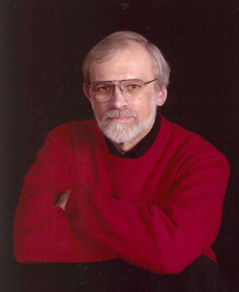Do you know the exalted, unreasonable hope that wells up out of utter despair? That's what I tried to get at with this piece.
- Darol Anger, from the liner notes to "The Unbearable Gift", on his CD album Woodshop.
I've been following with great interest Vivienne Armentrout's blog, "Local in Ann Arbor" (all links below). Vivienne has a great eye for detail and a gift for putting the details all together in a lucid, enlightening essay.
But much as I admire her abilities, I almost always end up in disagreement with her. (So much for the idea that we can solve all our disagreements if we all agree on the facts.)
Vivienne has been doing a carefully-researched series titled, "AATA: Moving Us Where?", analyzing the emerging county-wide transit plan, "Moving You Forward". Her well-documented conclusion: we can't do it. We don't have the money, and there are far too many uncertainties in the political arena, not to mention the uncertainties of life in general.
That's why Darol Anger's thoughts (quoted above) struck me when I noticed them in a copy of Sing Out magazine this morning. I continue to hope, unreasonable though it may seem, that we'll be able to develop and support a county-wide transit system. Here are two ways to look at it: historically, and in terms of alternatives.
Historically
When have we ever achieved anything worth doing, without risk? Consider...
- Would we be living in America if our ancestors hadn't taken the risk of coming here, not knowing whether they would make it in the "new world"? (Many, many of them died in the attempt.)
- Would the United States be an independent nation if the Founding Fathers had waited until the budget permitted them to raise an army? (And the outcome was in grave doubt for many years.)
- Would the Interstate Highway System have been built if it was known back in 1956 that the system would cost more than 1.2 trillion dollars...and practically none of that was identified in the budget?
Many factors led to people's decisions to go ahead with these efforts. One factor was an optimistic vision of the future, an "unreasonable hope", as Darol Anger put it, that they could make their lives better by working through the uncertainties.
Another factor was "utter despair" at the current situation, whether it was poverty and opression in the "old world", anger at being exploited by England, or frustrating snarls of congestion on two-lane roads. My feeling is that, if we're not in "utter despair" yet (and many Michiganders are), we will be soon.
One Alternative
What happens if we elect the "status quo" alternative, continuing as we have been? Certainly, one alternative is to do nothing. We could try to continue with AATA as it is, supported mainly by the millage paid by Ann Arbor residents, together with state and federal funding and relatively small "Provision of Service Agreement" funds from outlying areas.
As Vivienne has counted the cost of improvement, so too, we need to count the cost of doing nothing. I hope Vivienne will update and elaborate on the estimate I did two years ago in my blog entry, "Can we afford a county-wide transit system?" Using data from the Census Bureau, WATS, AAA, and APTA, I came up with these conclusions:
- 112,980 households in Washtenaw County had 2 or more automobiles;
- the annual cost of owning an auto at that time was $9,190 (it's closer to $10,000 now);
- if only 20% of the multi-auto houseolds were able to reduce their vehicles by one because of improved transit, the total savings in the county would be $207,657,240 each year;
- if residents kept 75% of that money and paid only 25% for transit, the county-wide savings for residents who sold one car would amount to $155,742,930 county-wide, and the transit agency would receive $51,914,310 in local funds;
- each household would pay $386.88 in transit tax, and those that sold a second vehicle would gain $1,160.64, a 300% return on investment.
These figures are now two years old, and they don't take into account Michigan's local tax structure. It would be a great service for someone with a better understanding of the legal details to update and refine these numbers.
We also need to consider the "collateral damage" of leaving most of the county very auto-dependent: the loss of people who can no longer afford to live in such an expensive transportation environment, and the loss of creative young people who far prefer to live free from the many burdens placed on us by our automobiles.
So the ultimate question to answer is, Can we afford not to have a county-wide transit system?
To learn more:
- Local in Ann Arbor, blog by Vivienne Armentrout
- Moving You Forward, a countywide transit vision
- Sing Out magazine
- Can we afford a county-wide transit system? Wake Up Washtenaw blog entry
- WATS - the Washtenaw Area Transportation Study
- AAA's Daily Fuel Guage Report
- APTA - the American Public Transit Association November 2011 Transit Savings Report




